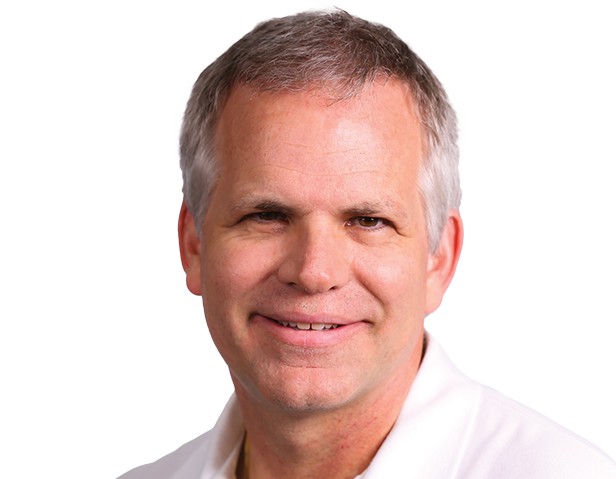The pandemic’s impact on society has proven to be long-lasting and, in many ways, permanent. In few areas have there been a more significant societal shift than in the workplace.
According to the Pew Research Center, 75% of Americans now work remotely at least a few days during the week. And 46% say they’d be likely to leave their job if they were mandated to be 100% in-person. It’s a far cry from 2019, when just 33% of Americans worked at home some days, according to the National Telecommunications and Information Administration (NTIA).
In addition, the pandemic prompted companies to recognize every facet of their people’s lives, instead of solely focusing on their professional needs.
The percentage that global remote jobs are expected to increase by 2030
(World Economic Forum)
With remote work no longer the competitive differentiator it once was, firms are challenged to offer even more in terms of benefits and perks, like on-site fitness centers, spa services, retailer discounts and pet insurance, in addition to competitive pay. Increasing happiness and promoting engagement too must be served in multiple ways.
The decade has already been a rollercoaster for the labor market, from the pandemic to the Great Resignation to now, when the pendulum is swinging back to an employer’s market. The next five years promise more uncertainty with AI and economic growth as major unknowns.
Still, employee expectations will continue to rise, and companies will have to find a happy medium. What kinds of flexibility and benefits can they reasonably offer to attract and retain talent? How can they engage employees on all levels?
“It can be a difficult balance,” says Britney Godsey, chief revenue officer at Gold Bond (asi/57653). “We want to give them what they want and also meet our objectives. There’s no silver bullet.”
Great Expectations
Flexible “work from anywhere” policies have been a long time coming, says Logan Altman, chief impact officer at Doing Good Works (asi/222095), a Counselor Best Place to Work. Working from home was often based on seniority or merit. Changes implemented during the pandemic, however, opened the door to a seismic shift in expectations.

What’s the Defining Trend of the Next Five Years?
“It’s going to be the advancement of technology, resulting in the change and/or elimination of jobs. From self-ordering at restaurants, to robots in factories, to AI-produced media, tech is going to change our daily experience in a big way. It’ll be more important than ever to communicate with employees and be open with them, ask for their input, and make them feel like the valuable part of the business that they are.” Tim Holliday, Children’s World Uniform Supply (asi/161711)
“Work and life had been largely separate,” Altman says. “Now, data shows that people will take a pay cut to have hybrid options.”
Flexibility isn’t just about the ability to work from home – it applies as well to those who come into the office. Regardless of a company’s workplace model, management will have to walk the walk, especially with millennials and Gen Z (and soon enough Gen Alpha) climbing the corporate ladder. Those generations in particular prize authenticity.
“If employers shame people for going to kids’ recitals or doctors’ appointments, they’ll have high turnover when employees start to catch on that they’re not standing behind their values, especially trust,” says Altman.
The days of working for a company for several decades and then retiring with a gold watch are long gone, says Tim Holliday, co-owner of Children’s World Uniform Supply (asi/161711), another Counselor Best Place to Work. That’s putting immense pressure on employers to meet promo employees’ ever-growing list of expectations.
“We used to look at our offerings every three to five years,” says Holliday. “Now it’s three to five months.”
Why is this so important? Happy employees tend to be productive and stay longer, says Mike Fossano, president of Premier Communications Group (asi/298496). That’s where flexible work, respect for work/life balance, and extra amenities make a difference.
“If you’re waking up excited to immerse yourself, to tackle problems, you’ll be productive,” says Fossano. “But if you’re not feeling your best, you won’t perform.”
It’s a more “whole-person” approach to management that’s taken hold over the past five years, and is poised to intensify over the next five, says Godsey. Gold Bond offers a slew of benefits, including hybrid work, paid health insurance premiums, telehealth services, pet insurance, tuition stipends and paid paternity leave.
“We have to address employees’ physical, emotional and mental health for productivity,” says Godsey. “We want to be a partner in their success, so we bridge the gap through benefits beyond the basics. It’s more holistic and symbiotic than in years past.”
What are your top employee-related concerns in 2025?
Finding qualified, skilled workers and paying them appropriately were the largest worker-related issues among attendees of the 2024 ASI Power Summit.
(ASI Research)
Offering lifestyle services can go a long way in demonstrating that an employer is invested in employees’ wellness, says Altman. Mental health services, in particular, have become especially critical; it’s nice to work for eight hours in comfy clothes, but feelings of loneliness and social isolation skyrocketed during the pandemic. It’s a phenomenon social scientists continue to monitor.
Employers have an opportunity to play a role in bridging that gap and keeping team members engaged. “Benefits fill their cup and help them re-energize,” says Altman. “Employees can pick what will help them be their best selves.”
The “whole-person” method is now expected, and shows no signs of abating.
“It’s more than pay,” says Godsey. “Employees expect a more holistic approach aligned with their personal values, personal growth and career mobility. They want culture and purpose. They’re not willing to just pay their dues.”
The Trust Factor
Employers in the promo industry say they’re more than happy to offer flexibility and perks, but that, in turn, they look to build trust.
“We expect accountability and reliability,” says Godsey. “We’re results-driven and we want people to be aligned with our objectives.”
ETS Express (asi/51197), an independent subsidiary of Counselor Top 40 supplier PCNA (asi/66887), offers fun in-person activities, like food trucks and group walks to encourage wellness. Management is also willing to make accommodations for personal needs, but they expect employees to communicate those requests in an honest way and make sure the work still gets done.

What’s the Defining Trend of the Next Five Years?
“Millennials and Gen Z will be a major portion of the talent pool. Companies have to be flexible and change the way they recruit, lead and support those groups. The right attitude is thinking about how to engage and get these groups to want to join every day and support the mission.” Maria DeLorenzis Reyes, MDR Brands
“We understand things happen,” says President Brandon Bell. “We have a system of accountability that’s tabulated. We want transparency, and we want them to use the system responsibly.”
Fossa Apparel (asi/55141) has stiff competition from large companies in the San Francisco Bay Area that offer a long list of benefits. Remote work options have helped the supplier find talent across the country, but that requires leaning into trust and depending on people who aren’t sitting next to them.
“Working from anywhere has been a big positive for us,” says General Manager Eric Chen. “We can tap into a much larger talent pool.”
It’s a permanent policy for the company, says President Michelle Chen. “We try to be as flexible as possible, accommodating to employees’ needs.”
And if a company says they’re built on trust, they have to stand behind it, says Altman. “Trust is earned and built,” he adds. “If we don’t practice mutual trust, the employees will call employers out. Trust creates rapport and communicates that employees have value. Otherwise, loyalty will drop. We pay by the job, not the hour. We trust they’ll get their work done.”
Looking Ahead
There’s no magic wand for the next five years – instead, employers agree that each company will have to figure out the balance that works for them.
“It’s a constant evolution,” says Fossano. “What’s important now is different from 10 years ago.”
Finding and keeping talent has always been a challenge, says Holliday. He expects that will stay the same over the next five years, and some employers will have to make a choice – continue to offer more and more benefits and hope people stay, or replace jobs with AI when possible as the technology improves.
“AI doesn’t need perks, nurturing or PTO,” Godsey says. “It’s enticing for an employer, but we want to provide jobs in the community and see people thrive.”
Some business experts have even argued that implementing AI will actually increase hiring. Regardless of the outcome, employees will still be a necessity, and businesses will be challenged to be generous with perks while holding employees accountable. That takes many forms, says Godsey, including project management software, regular check-ins, and establishing “guardrails” that exist alongside flexibility.
“We need to be able to outline that the work’s been completed,” says Godsey. “Work is not activity-based anymore; it’s outcomes-based.”
